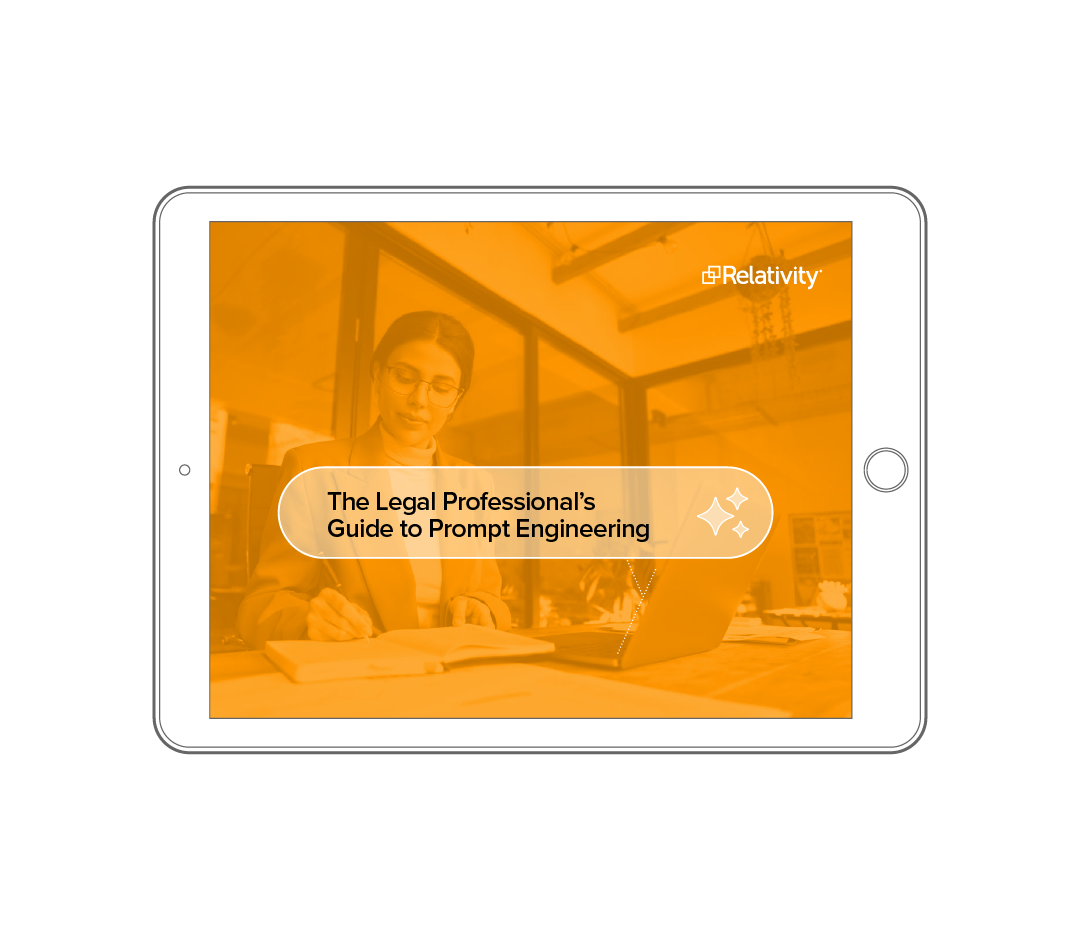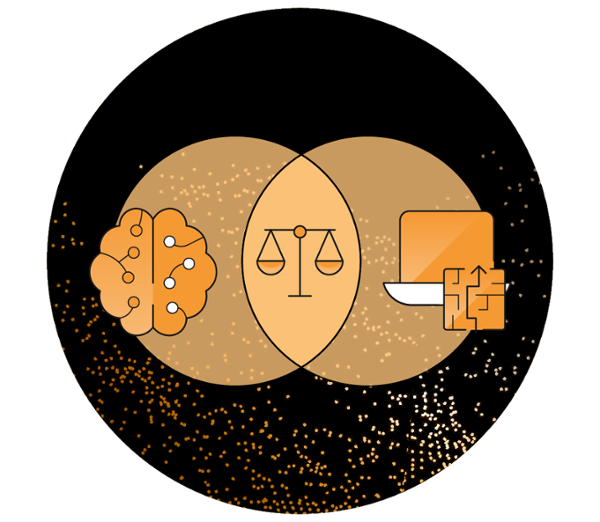AI—particularly generative AI—is pushing the boundaries of possibility for Legal Data Intelligence professionals in 2025. It solves previously insurmountable data challenges and empowers legal teams to refocus time previously lost on tedious, manual tasks toward innovative work instead.
As the pervasiveness of AI expands the skill set required for industry professionals to remain competitive, this moment in legal tech is an opportunity for "legal superheroes" to be defined not by superhuman completion times on rote tasks, but rather an increased focus on the strategic thinking that makes this profession so exciting.
Hear from 2025 AI Visionaries on how strategic AI skills are a superpower that is transforming the industry from the inside out.
Closing the AI Fluency Gap
It’s no secret that legal has a data problem, and what is arguably most thrilling about generative AI is that it brings promising solutions to challenges that have plagued legal teams for decades.
“The range of AI-powered tools we can leverage to address complex data problems is both exciting and transformational.”
– Gina Taranto, Director of Applied Sciences at ProSearch Strategies
“Now that we're in a new age of computational power—in terms of hardware, software, and algorithmic know-how,” says Gina Taranto, director of applied sciences at ProSearch Strategies, “the range of AI-powered tools we can leverage to address complex data problems is both exciting and transformational.”
The value is abundantly clear, and legal tech organizations are investing substantial time and resources into generative and agentic AI solutions. But the relative speed of the AI boom means that legal professionals both new and seasoned may lack the knowledge and expertise necessary to leverage these tools strategically.
“There’s a gap in AI literacy among legal professionals,” says Shannon Yavorsky, partner, co-chair of the Artificial Intelligence Practice, and chair of the Cyber, Privacy, & Data Innovation Practice at Orrick, Herrington & Sutcliffe. “Closing it requires ongoing education, cross-disciplinary collaboration, and hands-on experience. Lawyers don’t need to be developers, but they do need to understand AI’s capabilities, risks, and the regulatory landscape to advise clients effectively.”
To close this AI literacy gap, aspiring legal superheroes can look to Batman for guidance: build yourself a robust toolbox of skills you can lean and expand on, and call in a trusted mentor when you need a roadmap for where to head next.
Strategy as a Superpower
AI excellence is a game of finesse. Being a skilled AI user means turning small, strategic actions into expansive outcomes.
“With AI, dramatic results no longer require heroic efforts,” explains Andrew Myers, discovery counsel at Bayer. “As the legal landscape becomes increasingly data-driven, professionals who embrace AI gain a significant competitive advantage, enabling them to provide more efficient, accurate, and effective legal services.”
It’s the definition (and opportunity) of “Do more with less.” Legal tech professionals who utilize AI gain the superhuman ability to be in many places at once, multiplying their output manifold. They can stop the runaway train and keep the subsequent trains on schedule—with less effort and in less time.
“AI can enable you to take on challenges and perform work you might not otherwise be able to do, due to budgets, time constraints, or competing priorities. Fundamentally, the hope is now real and immediate: emerging technology can offer more hours on the clock, days in the calendar, and dollars in the budget for the legal profession.”
– Andrew Myers, Discovery Counsel at Bayer
The Hero We Need
AI today stands at the edge of operations, but it won’t be long before the technology is inextricably ingrained into the way we work. It promises to shift from a tool in the hand of the hero to the hero’s heartbeat itself.
AI is at once the superhuman speed, the x-ray vision, and, most importantly, the ability to wield these powers cleverly and strategically—because it fortifies decisions with data. And the technology will only continue to develop and improve.
“AI will soon be deeply integrated into legal and business processes, automating routine tasks and enabling more data-driven decision-making. I anticipate the legal industry will shift toward higher-value advisory work, with privacy and AI governance playing a critical role in shaping responsible innovation.”
– Shannon Yavorsky, Partner, Co-Chair of the Artificial Intelligence Practice, and Chair of the Cyber, Privacy & Data Innovation Practice at Orrick, Herrington & Sutcliffe
“I’m excited for the ability of AI and AI agents to help organize composite data types,” Gina shares, gathering “clusters of related artifacts that need to be considered in relation to each other before we can understand the meaning any of the individual component parts has in this broader context.”
But technology on its own is Thor’s hammer on the coffee table. It’s just a hunk of stone until someone learns how to swing it.
Putting on the Cape
So how do you keep up and stay competitive? You have to get your hands dirty and dive in. As any superhero will tell you, the only way to learn is to do. It helps to understand how other people fly, but you’re only going to know you’ve mastered it when the wind is in your hair and your shadow is a hundred feet below. You’re never going to sail if you don’t jump first.
And if you fall a few times along the way—well, that’s how you learn what doesn’t work. Shift course and try a running start this time. Even Spider-Man crashes through a wall now and again.
Graphics for this article were created by Sarah Vachlon.












